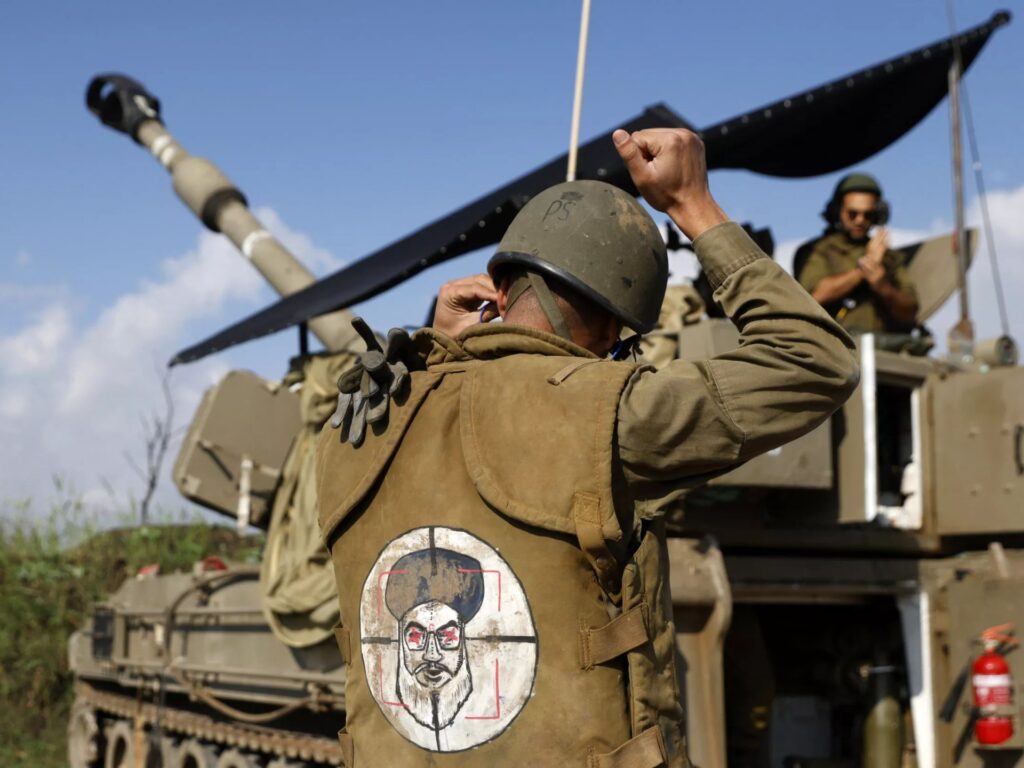Perhaps the most dangerous thing about the military confrontation between Israel and Hezbollah in Lebanon is the feeling that this confrontation is a foregone conclusion, perhaps not as an extension of the war in Gaza, but at some point in the near future it may be more about a broader war with Iran.
With this introduction, Haaretz newspaper opened an analysis – by writer Alon Pinkas – in which he said that this war is the decisive point in which American and Israeli intelligence assessments differ greatly. While the United States sees this conflict as having very different and more explosive geopolitical and strategic aspects, Israel seems resigned to the idea. .
American officials have expressed “concern” that they believe that Israeli Prime Minister Benjamin Netanyahu is encouraging escalation as a key to his political survival, portraying this war as a historic civilizational war between Iran and the West, and blaming US President Joe Biden for not rising to the occasion.
Escalation returns again
Immediately after the Al-Aqsa Flood operation on October 7, 2023, the United States determined that preventing escalation with Hezbollah in Lebanon and with Iran throughout the region was a fundamental interest, and sent two groups of aircraft carriers to the region, and responded strongly to the idea of Israel launching a pre-emptive strike. For Hezbollah, the feeling in Washington was that the skirmishes across the Israeli-Lebanese border had been contained, but the “escalation” had returned dangerously.
If the current tensions between Israel and Hezbollah ostensibly revolve around the Shebaa Farms, in reality – as the writer says – they are part of a much broader context, as it relates to Hezbollah’s work as an Iranian deterrent against possible Israeli attacks on Tehran, and an essential component of the network of Iranian agents who They are working to destabilize the region, according to the newspaper.
Despite Israel’s apparent military superiority, the war between Israel and Hezbollah would be devastating for both sides, because Hezbollah’s precise missile arsenal represents a kind of draw, and unlike Gaza, which is an enclave surrounded on all sides, Lebanon has long borders with Syria, which in turn has long borders with Iraq and Turkey, ensuring the passage of weapons and fighters.
The most important political dimensions lie in the outbreak of a ground war, because if Israel invades Lebanon with the aim of pushing Hezbollah away from the border, it would be invading a sovereign state that is a member of the United Nations, and this would immediately be equivalent to the “Russian invasion” of Ukraine that the United States and NATO condemned. North Atlantic comprehensively, according to the newspaper.
Iran is bolder
Here, the escalation should be viewed from a broader perspective – as Alon Pinkas says – as “the Russian invasion of Ukraine brought Iran out of its relative isolation,” as well as the reckless decision taken by former US President Donald Trump – with Netanyahu’s encouragement – to unilaterally withdraw from the nuclear agreement. The Iranian regime gave Tehran the opportunity to accelerate its nuclear program, and Beijing sided with Iran.
Thanks to the progress in its nuclear program, and its effective use of Hezbollah and the Houthi group that threatens commercial shipping in the Red Sea, Iran has now become bolder, but nevertheless it does not seek escalation. Rather, it wants to preserve Hezbollah as a deterrent force, and this is what the United States also sees, Therefore, she believes that this can be avoided through diplomacy.
Perhaps the most worrying and frightening thing about any military confrontation between Israel and Hezbollah is its clear inevitability and the feeling that it is taken for granted, especially with the absence of a permanent diplomatic agreement between the two parties. Given the reason for Hezbollah’s presence and Iran’s regional motives, such a war may be just a matter of time. .
It is clear that the current concerns about escalation focus on the near future, as it is in support of the war in Gaza or an extension of it. However, such a war – as the writer sees – is not necessarily linked to Gaza, because it has its underlying causes.
Even if confrontation is avoided now, war looms on the horizon within the next two or three years. But why not try, if the political goal is a diplomatic solution, to do so before or instead of war? The writer asks at the conclusion of his article.

